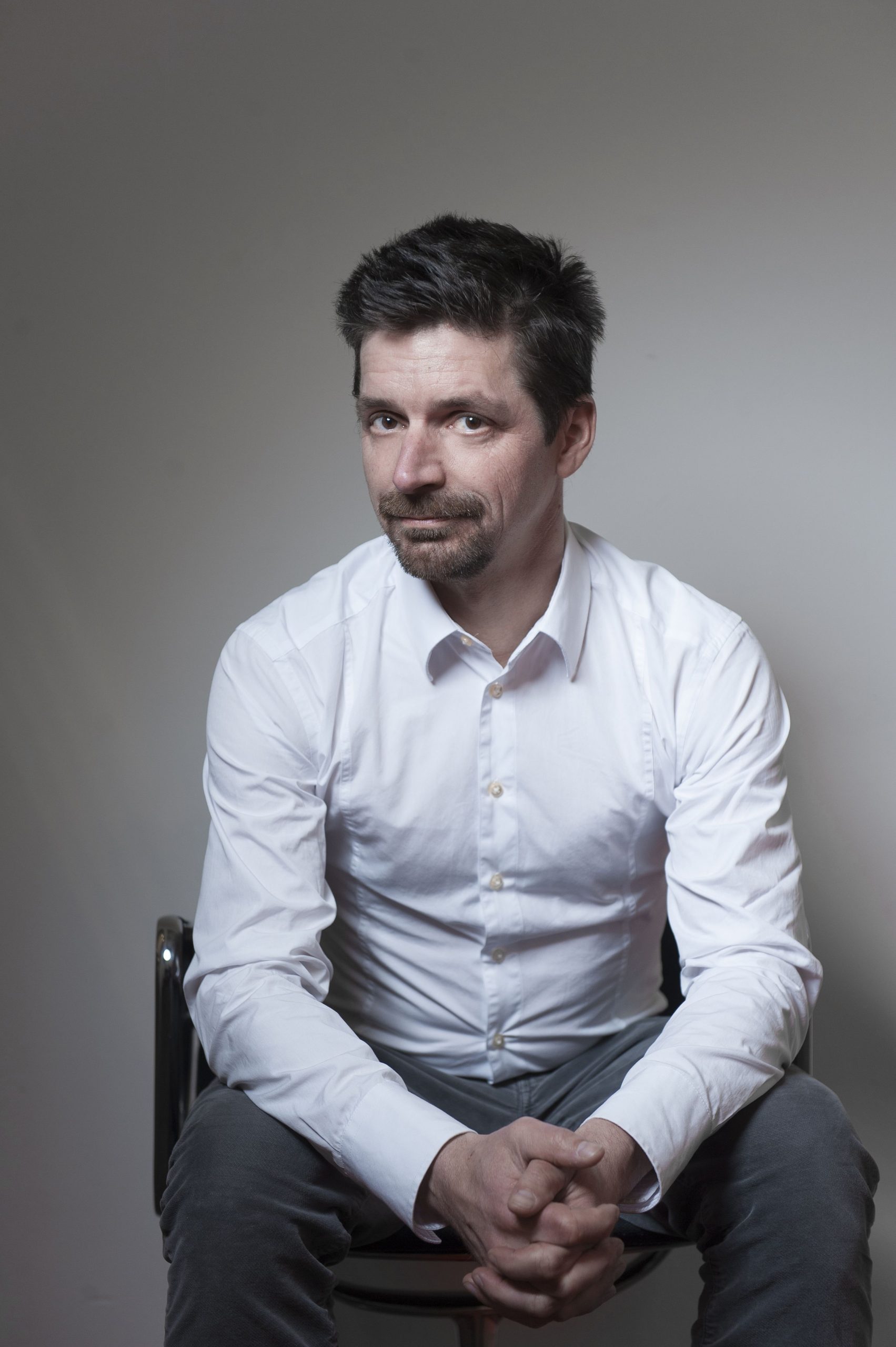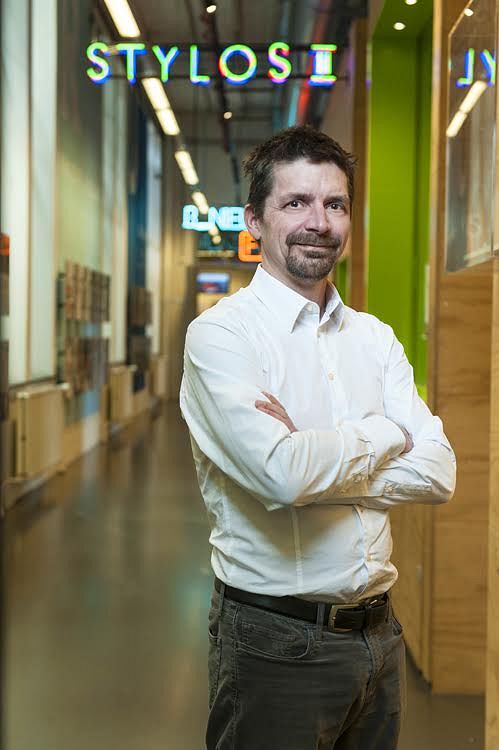Internationalisation should be the by-product, and not the goal of an excellent university according to new Dean of the Faculty of Architecture and the Built Environment (BK). Peter Russell, a Canadian national, is currently the only non-Dutch dean at TU Delft.
How does it feel to be appointed as the new dean of architecture at TU Delft?
“It’s a great privilege. It’s a brilliant faculty full of interesting people, interesting students, and there is a really robust culture in the faculty so it is a great challenge to see how you can make something that’s already excellent even better. As such, I am honoured quite a bit by this appointment.”
What has the reaction to your appointment been like?
“One of excitement, and warmth, and curiosity, and I’ll say welcomed unrest.”
What has your experience been here so far?
“I haven’t seen or understood everything yet so I am still in ‘sponge-mode’, just absorbing everything and learning about how the university works. As someone who is coming completely from the outside I am asking each person to describe the faculty, and from those descriptions I get a complete understanding of how things work. You figure out in the ‘organogram’ of the faculty that there are a lot of arrows and connections that aren’t made official, and I am trying to understand those right now.”
What do you expect will be your biggest challenge in the near future?
“I don’t know if it’s much of a challenge, but the challenge of the faculty is to maintain excellence amid a group of faculties that are considered our equals worldwide, that are all really good. It is easy to rest on your laurels or to sit back and think ‘well we made it to here’ – we were number 3 in the last rankings and number 1 in research. It is a very human thing to do, to say job well done, pat yourself on the back and take a break. But actually that is the point when you need to understand what we could be doing better, and maybe even how we might do things differently, in order to get to a different level of excellence. And that is going to be difficult.”
You were appointed not only because of your experience in the field, but your international experience – why do you think this is?
“Throughout my career I have been able to see how universities work from the inside, whether it’s in Germany, Switzerland, or North America. So that experience at least means that as soon as something comes up about a methodology, about how we might want to frame something or work something out, I have a very wide pallet of experience, or at least knowledge of different ways of going at the same problem. I think the wealth of that knowledge is what I bring. And that doesn’t mean we have to do things differently, it just means that we can be sure that we are picking the best way.”
While at RWTH Aachen you – among other roles – were a partner in an architecture firm and Rector’s emissary for Alumni Affairs – How did you juggle everything?
“I think part of the secret is to let people who are good at things do their jobs. In the architecture office where I am a partner my job was not to be the architect and to design all the details, my job was to be a liaison for possible clients, to ensure that we secured some of our commissions. Our heating plant was the work of two other partners in the office, who did the façade that won a number of awards. Allowing them to do what they do well, that’s how you juggle. You basically get out of the way, and let people who are good at things do them. And make sure that they receive the accolades that they are due, and not always be the person up front. That’s why the architecture office doesn’t carry my name – I never wanted that.”
As the only international dean at TU Delft, do you feel there is extra pressure on you?
“I feel that maybe there is more light being shone in my direction. It is clear that I am not a Dutch citizen, I wasn’t brain-washed by the Delft system of thinking, so I have on the one hand responsibility, and the expectation that I bring some other ideas, but on the other hand I have the freedom to be able to think outside the box.”
Do you have any plans or views regarding making English the primary language of instruction in this department?
“I think that it’s very easy to have this polarising argument, because you can talk about the importance of language in culture, and you can also talk about the importance of language in enabling people to have robust career options. I think that for me personally, it is almost unavoidable that a certain degree of all of the studies should be made available in English, so that students who have finished their high school diplomas in English or bilingual programmes and have worked to be fluent in both languages have that option to continue. If we don’t they will go somewhere else, and those are probably the best students. And so you want to be able to encourage them, be able to give them the challenges that they seek.”
You have to learn Dutch fluently as part of your appointment. Do you think international students moving here should have to as well?
“It shouldn’t be a question of should they have to or not. I think that they, coming to live and work and be a part of this community, should want to respect the culture they are coming to – part of that is not only learning how to order a glass of beer in the local language, but perhaps even being able to discuss local politics, or things that affect everyone in their day. I know that for many it is difficult, and they have to make an effort. But I think that is why you come to a university like TU Delft – to make an effort.”
TU Delft is moving more and more towards internationalisation. Do you think it is doing enough to attract and integrate international students?
“I really can’t give an opinion about that. For my appointment it was all taken care of, but I assume that perhaps the dean of the architecture faculty receives better treatment than a student from Zaire. What I can say is that it has to be clear that internationalisation in itself can’t be a goal. To have people from different countries is nice, but adding up the number of flags you fly in front of the main building because you have employees with those passports is like the tail wagging the dog. You want the best people, and if you can make it attractive for people from the entire world to come, then you will get the best people and they will not come just from the Netherlands or Germany, they will also come from Suriname or Canada.”
You mentioned the English language debate can be polarising. Do you think some Dutch staff feel threatened by this drive towards English?
“Even in Germany this question raised heated debate, about the beginning of the end of the German language even though there are one hundred million native speakers in Europe alone so it’s not as if it’s going to die off tomorrow, or even in 100 years. But I would say everyone identifies their personal identity with their mother tongue. When you look into a mirror and ask ‘Who am I?’ you ask that question usually in your mother tongue, and of course it is threatening if your tongue is in theory degraded or declared not as good as another one. But then again you have to frame the why first; why would you have English in a bachelors. There is a new generation of young people in the Netherlands who are fluent in English, and when they are probably thinking already about an international career why would you then require them to park their English at the side, when you could offer them a range of possibilities and let them choose how much challenge they want to take on.”
What improvements do you have in mind for the BK department?
“I have some ideas about what would help TU Delft remain a top five architecture school world-wide, but I’m not about to announce that right now, because I haven’t even met everybody on the management team yet. Walking in with big plans would be a complete faux pas, that’s why I said I’m in ‘sponge-mode’. I first want to understand how the faculty has worked till now, what do people in the faculty see as their challenges. I think that a robust plan of action can only work once I have understood how the faculty is working – and then like a typical architect, integrate those factors with ideas for a new or different design. And then to integrate and fuse those into a synthesis that will be at least understood if not accepted by everybody.”
Do you have anything to add about your hopes for the architecture department?
“Aside from being high in the rankings I think that this faculty can play a really strong leadership role in research activities taking place across faculties. Although maybe architects are intimidated by the amount and scope of research that is done in say, physics, chemistry and biology, architects are the people who dream of crazy ideas, and sometimes we are even allowed to get them built. And we are good at that. And so I would hope that the faculty can be a source of inspiration for all sorts of new research. Whether it is going to biologists to say ‘make me a living breathing paint’, or asking the chemists to ‘make me a façade that can repel or absorb water, or clean the air’, or asking the physicists whether I can make an exothermic or endothermic wall. Those are three of the natural sciences where people are working on inter-stellar physics and solving cancer, but there are also other questions that often come up through those fields where it takes a designer, or someone with a vision to come and ask a silly question. And you then all of a sudden realise, ‘Hey, we actually do have something like that I’m working on, I never thought of that application for it.’ And that’s what spurs on industries that radically change all sorts of things.”


CV
Peter Russell was born in Canada, originally studying graphics and engineering before making his move to architecture. He has done a great deal of work at universities around Europe, and before his appointment to TU Delft in 2015 was Professor of Computer Supported Planning in Architecture at RWTH Aachen, as well as the dean of architecture from 2005. He was a founding member of the European architectural research network ARENA, and is currently leading a group of people trying to establish the solar decathlon in Europe as a European Commission funded project.



Comments are closed.